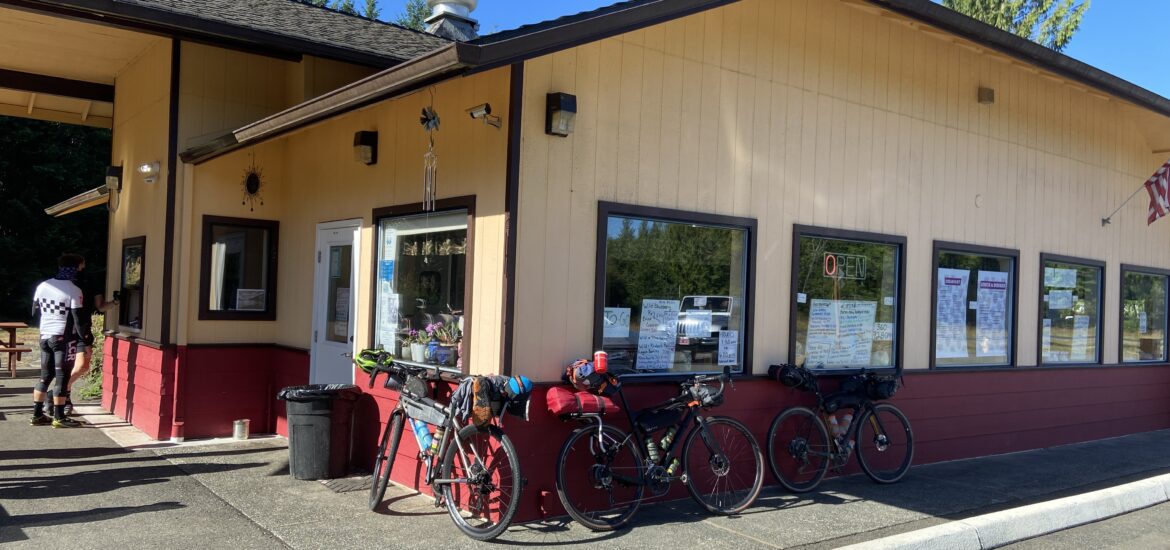The following three news stories caught my attention this week.
Key ODT link gets go-ahead | Peninsula Daily News
West Virginia Has Everyone’s Attention. What Does It Really Need? – The New York Times (nytimes.com)
At first blush these may seem disparate stories, but there is a common thread: money. Outdoor enthusiasts rightly embrace the leave no trace ethic, but I think we need to break from this habit and leave a trail of money wherever we go.
Money talks.
This past fall my wife and I spent two nights camping at Bastrop State Park near Austin, TX. The park was built during the Great Depression by the Civilian Conservation Corps (CCC), and, in addition to a swimming pool and a campground, it has fourteen stone cabins all for rent ($110 to $200 per night). The park is a popular getaway for Houstonians and Austinites. The park is an economic engine for the nearby town of Bastrop. It’s an engine that doesn’t rely on extraction or destruction. A modern day CCC can build those engines in every State, maybe even in every county, in the United States.
The Olympic Discovery Trail (ODT) is the result of a lot of hard work and determination. It’s a glimpse of what‘s possible, but it’s only possible if we outdoorsy types show the locals why it’s in their best interest to make the initial investment. We do this by pouring our dollars into the local community.
More trails and more access will not come through heartstrings, but instead via purse strings. If we want more access we need to show the locals that access doesn’t only bring people, but it also brings money. All too often we urban outdoors types tend to roll into the rural areas and pay no attention to the folks who actually live there. A smile when you go into a gas station to use their restroom and drinking fountain is nice but buying a Gatoraid and some food is better. It’s the difference between guest and pest.
Extraction industries, especially coal, are on the decline in the US. Fortunately, many states that are rich in natural resources are also rich in natural wonder. Switching from extraction to tourism can be tough – it’s literally changing a way of life – but if done correctly it can be crazy successful.
In 2014 my son and I made the long drive from Seattle to Leadville, CO in order for me to ride the Leadville Trail 100, a bucket-list event. As we climbed from Copper Mountain we drove past the closed molybdenum mine – what used to be essentially the sole source of revenue for the town. Leadville nearly died, but thanks to the hard work of a few visionaries the town reinvented itself as a tourism and ultra-sports Mecca. The town now hosts thirteen major races, good luck getting an entry in any of them.
If rural areas are to move from extraction to preservation we need to show an economic benefit. Saying don’t cut down those trees because they are old, majestic and beautiful isn’t going to save many trees. Presenting the case that those trees are either worth ten thousand dollars on the ground or a million if left standing will change some minds.
Trying to put a velvet rope around our natural resources isn’t going to protect them. Eventually future Trumps will sell them to the highest bidder. We instead need to make the case that preservation makes more economic sense than destruction. We can begin this process by generously supporting the rural communities that we visit.

Рекомендую Взломать вк . Проверенные хакеры, которые предоставляют профессиональные услуги.
Рекомендую – какую скороварку лучше купить для дома
Проверенное и надежное казино – selector casino сайт
Рекомендую – производство бытовок
Рекомендую – либет казино войти
Рекомендую leebet casino сайт
Рекомендую – ремонт телефона сяоми редми
Рекомендую – либет казино войти
Рекомендую – ремонт техники Hobot
Рекомендую – селектор казино зеркало
Рекомендуем – селектор казино
Рекомендую – ремонт пластиковых окон сайт
Рекомендую – selector casino войти
Рекомендуем – селектор казино сайт
Рекомендую – selector casino зеркало
https://yarus-kkt.ru/
https://shvejnye.ru/
https://shvejnye.ru/
кейтеринг Орск
телеграм каналы список каталог
промокоды алиэкспресс пикабу
промокоды на технику алиэкспресс
https://receptmult.ru/
https://receptmult.ru/
https://yarus-kkt.ru/
лучшие школы для подготовки к егэ
лучшие школы для подготовки к егэ
титуальный лист реферата
титуальный лист реферата
список литературы в реферате
структура реферата по госту
структура реферата по госту
план реферата
реферат по физкультуре
реферат по биологии
план реферата